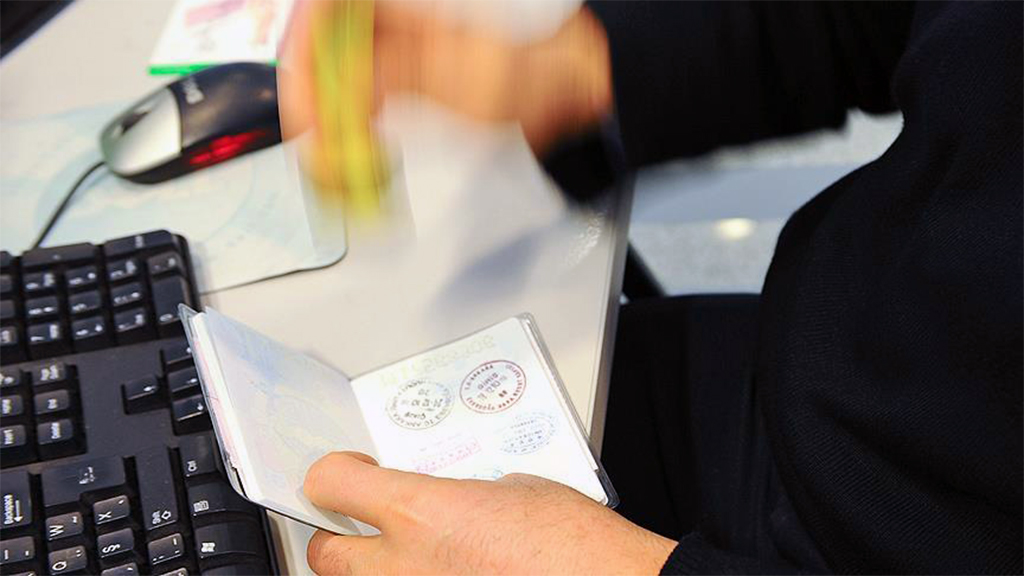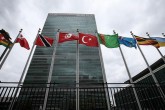As of Thursday, U.S. consulates in Turkey ended their restrictions about visa applications and resumed normal service in visa processing. Although the foreign services of the two countries have been negotiating this for a while now, the statement by the U.S. embassy in Ankara came as a surprise. Since this decision, there have been debates in Turkey about the thinking behind this decision. Is it a sign that the U.S. is willing to repair failing relations with Turkey or is it just damage control in bilateral relations before a series of potential further disruptions in mutual ties, such as the S-400 issue?
Yesterday many observers of Turkish-American relations preferred to approach developments in a rather cautious, optimistic mode. Developments in bilateral relations in the last month, the ongoing crisis in regard to U.S. relations with the PKK-affiliated People’s Protection Units (YPG) and Fetullah Gülen’s presence in the U.S. have so far demonstrated a downward spiral. In the last month, relations were particularly strained due to developments in the Zarrab case, statements by National Security Adviser H.R. McMaster and finally President Donald Trump’s decision to declare Jerusalem as the capital of Israel. At the public and/or governmental level these developments were considered as a significant disrupter of public perception of the U.S. The already negative tone of the U.S. in Turkish media and society deteriorated in this time period. So what will be the impact of this decision on bilateral relations?
If this is a first step by the U.S. administration to review policies implemented in the last few years in relation to Turkey and an attempt to establish mutual trust, it is a symbolic but important endeavor. However, this symbolic step must be complemented in the near term by revising previous policies by the U.S. administration, most significantly in regard to support for the YPG. It is obvious that there is a feeling among some in Washington to underestimate the security risks of the YPG for Turkey. Somehow they find the concerns of Turkey about the YPG as not very reasonable, justifiable or appropriate. Some even started to ignore the trauma of PKK attacks in different cities that took place following the elections in 2015. However, the trauma and risks are real for Turkey and support by the U.S. for the YPG generated a major wound in bilateral relations. It is a very simple equation for the public. A terrorist organization that killed thousands defied the resolution process and launched more sophisticated attacks on Turkey in the last few years. However, the group’s Syria branch is considered a partner by the U.S. and despite all protests from Turkey, is supported militarily by a NATO ally. And Turkey is criticized by some for expressing its security concerns amid this extremely problematic relation between the U.S. and the YPG and is expected to be nonreactive by the fact that this terrorist organization will control areas adjacent to the Turkish border. Of course it is important to remember that the PKK is also recognized as a terrorist organization by the U.S. And of course one needs to put all this in a perspective of the failure of U.S. policies in regard to Syria. Selective amnesia will not help. The red line statement and the abandonment of U.S. allies needs to be remembered. In the absence of this context, one can find itself in a rather simplistic explanation of the state of Turkish-American relations.
In a similar vein, predominant segments of society believe that the U.S. still did not recognize the trauma that Turkey went through during the July 15 coup attempt. Since that tragic night, Turkey has not received the expected level of cooperation from the U.S. In fact, without appreciation of the graveness of the danger that Turkey faced in this coup attempt, symbolic steps will only be Band-Aids for wounds that occurred in bilateral relations. They will not bring a lasting solution for problems between the two countries. From the reactions yesterday, the Turkish public sees this symbolic step as insufficient to increase expectations at this point. Many considered it just an attempt by the U.S. to fix a previously reckless decision.
If the U.S. administration is willing to fix the situation, yesterday’s decision was a great start for things to do in 2018 in regard to all the aforementioned concerns of Turkey. In the absence of these steps, we may continue strained relations in the new year.
[Daily Sabah, 29 December 2017]
In this article
- Opinion
- 2015
- 2017
- 2018
- Al Quds
- Daily Sabah
- Donald Trump
- Elections
- Fethullah Gülen
- Israel
- Jerusalem
- Kurdistan Workers' Party Terrorist Organization (PKK)
- Middle East
- NATO
- NATO Ally
- Palestine
- People's Protection Units (YPG)
- PKK - YPG - SDF - PYD - YPJ - SDG - HBDH - HPG - KCK - PJAK - TAK - YBŞ
- Red Line
- Reza Zarrab
- S-400 Triumph Air Defence Missile System
- Syria
- Syrian Civil War
- Syrian Conflict
- Syrian Crisis
- Terror
- Turkish Foreign Policy
- Turkish-American Relations
- Türkiye-US Relations
- Türkiye's Foreign Policy
- United States (US)
- Visa
- Visa Crisis



